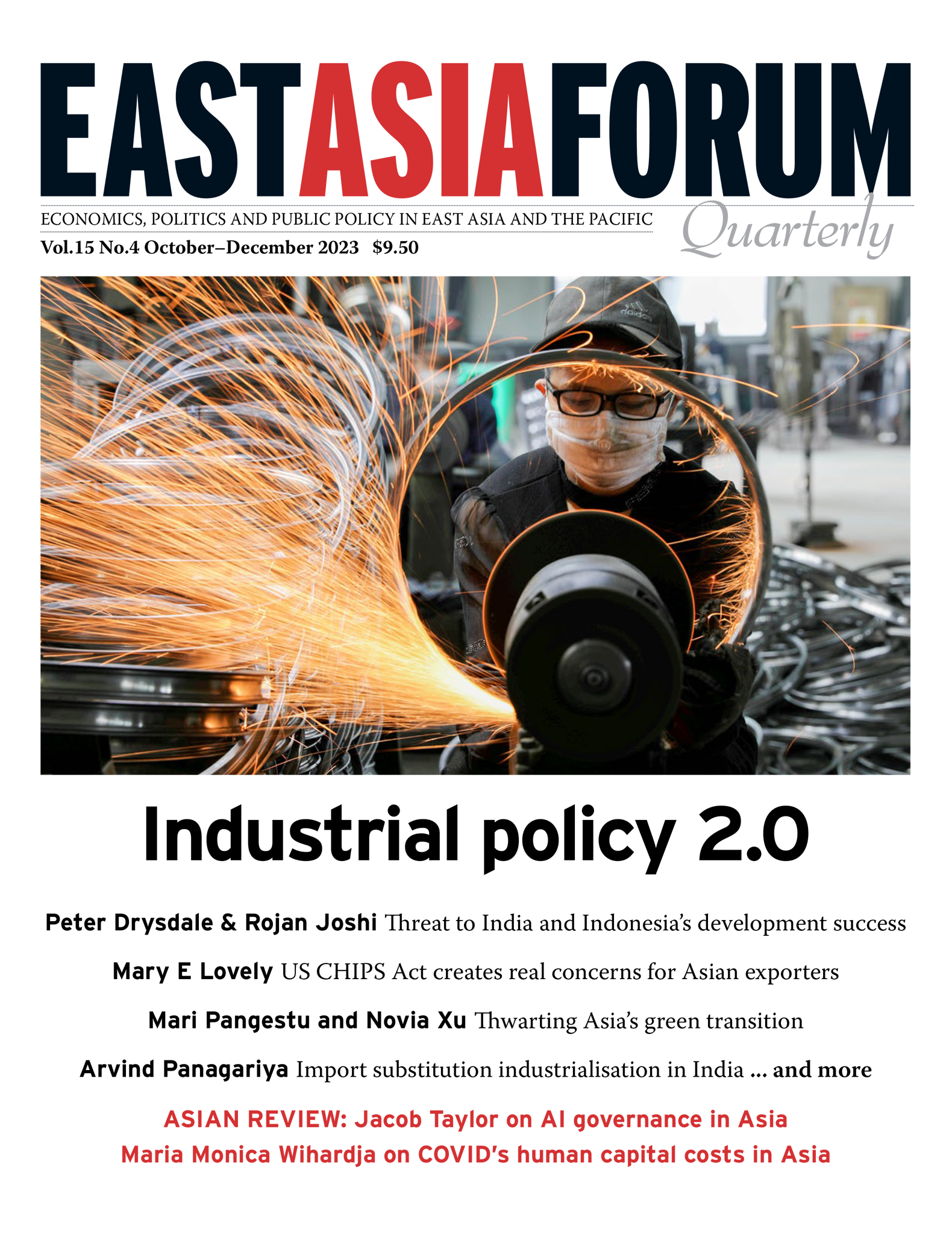
Industrial policy 2.0
Volume 15, No 4: October – December, 2023
It’s back: the past decade has seen a remarkable resurgence of industrial policy in the developed world. Geopolitical fragmentation and the resultant suspicions of international trade, the politically induced adoption of second-best industrial policies to address carbon emissions, and the use of manufacturing incentives sparked by fears of deindustrialisation and widening inequality risk tit-for-tat protectionism and further splintering of the global economy. This issue of East Asia Forum Quarterly examines what the new enthusiasm for industrial policy activism means for the global system and Asian economies: exploring its effects on the ability of emerging Asian economies’ to break into manufacturing in global value chains; investigating how measures aimed at encouraging domestic processing of raw materials affect the stability of policy environments and green industrialisation; detailing and comparing the experiences of major regional economies with policy developments in semiconductor and electric vehicle manufacturing and renewable energy; and appraising industrial policy’s effects on smaller economies and the rules-based trading system from a global perspective.
Download
It’s back: the past decade has seen a remarkable resurgence of industrial policy in the developed world. Geopolitical fragmentation and the resultant suspicions of international trade, the politically induced adoption of second-best industrial policies to address carbon emissions, and the use of manufacturing incentives sparked by fears of deindustrialisation and widening inequality risk tit-for-tat protectionism and further splintering of the global economy. This issue of East Asia Forum Quarterly examines what the new enthusiasm for industrial policy activism means for the global system and Asian economies: exploring its effects on the ability of emerging Asian economies’ to break into manufacturing in global value chains; investigating how measures aimed at encouraging domestic processing of raw materials affect the stability of policy environments and green industrialisation; detailing and comparing the experiences of major regional economies with policy developments in semiconductor and electric vehicle manufacturing and renewable energy; and appraising industrial policy’s effects on smaller economies and the rules-based trading system from a global perspective.
